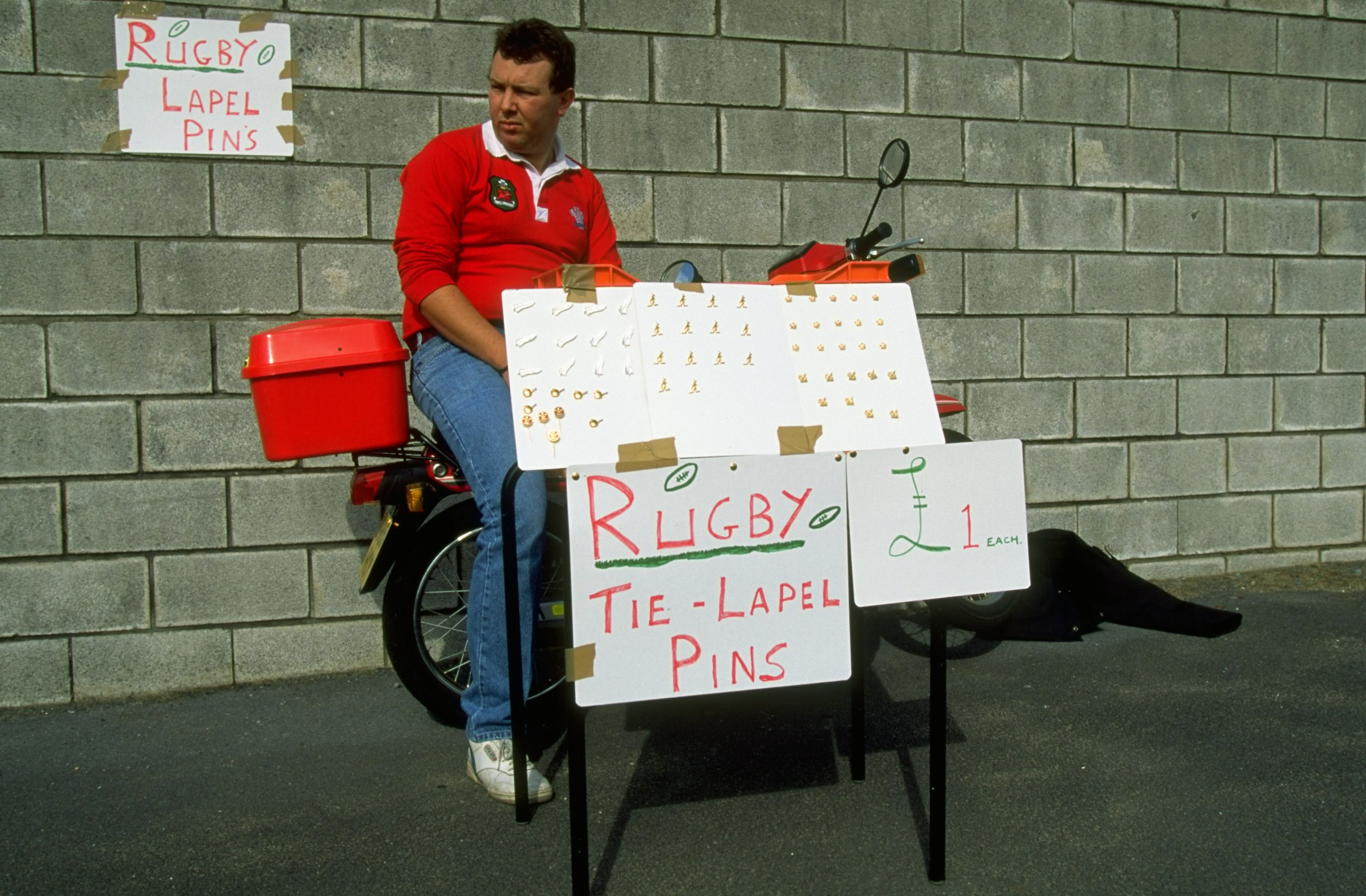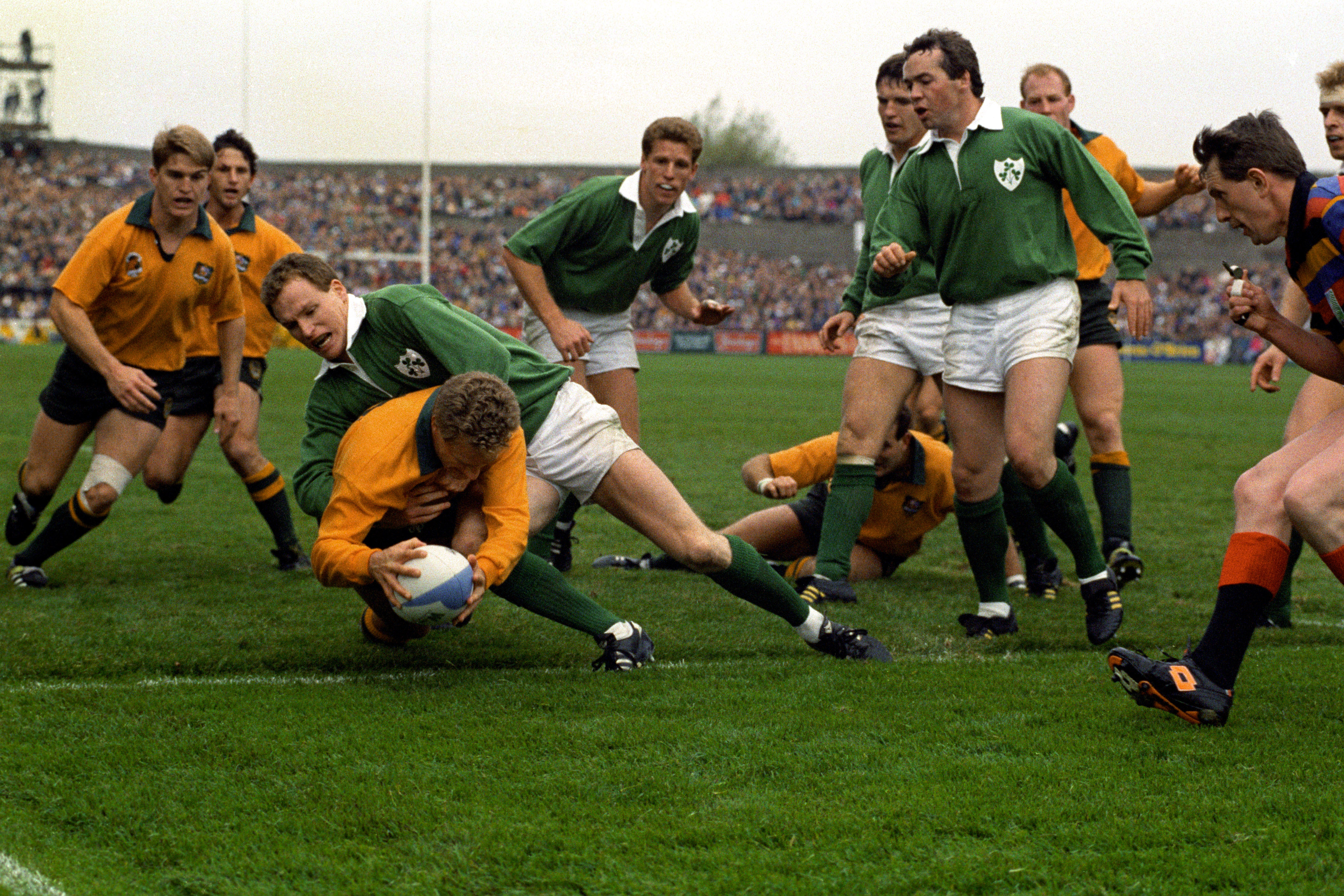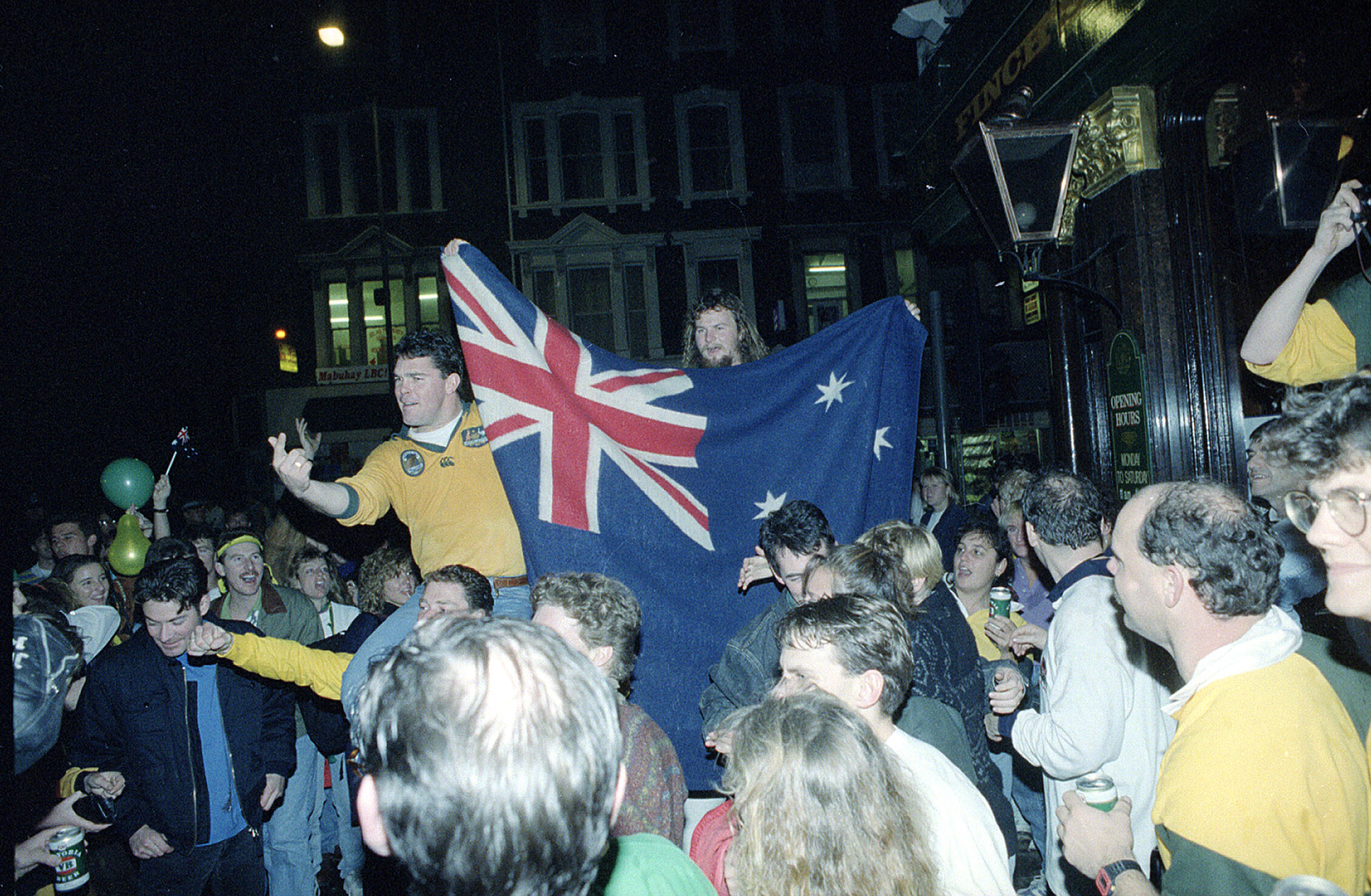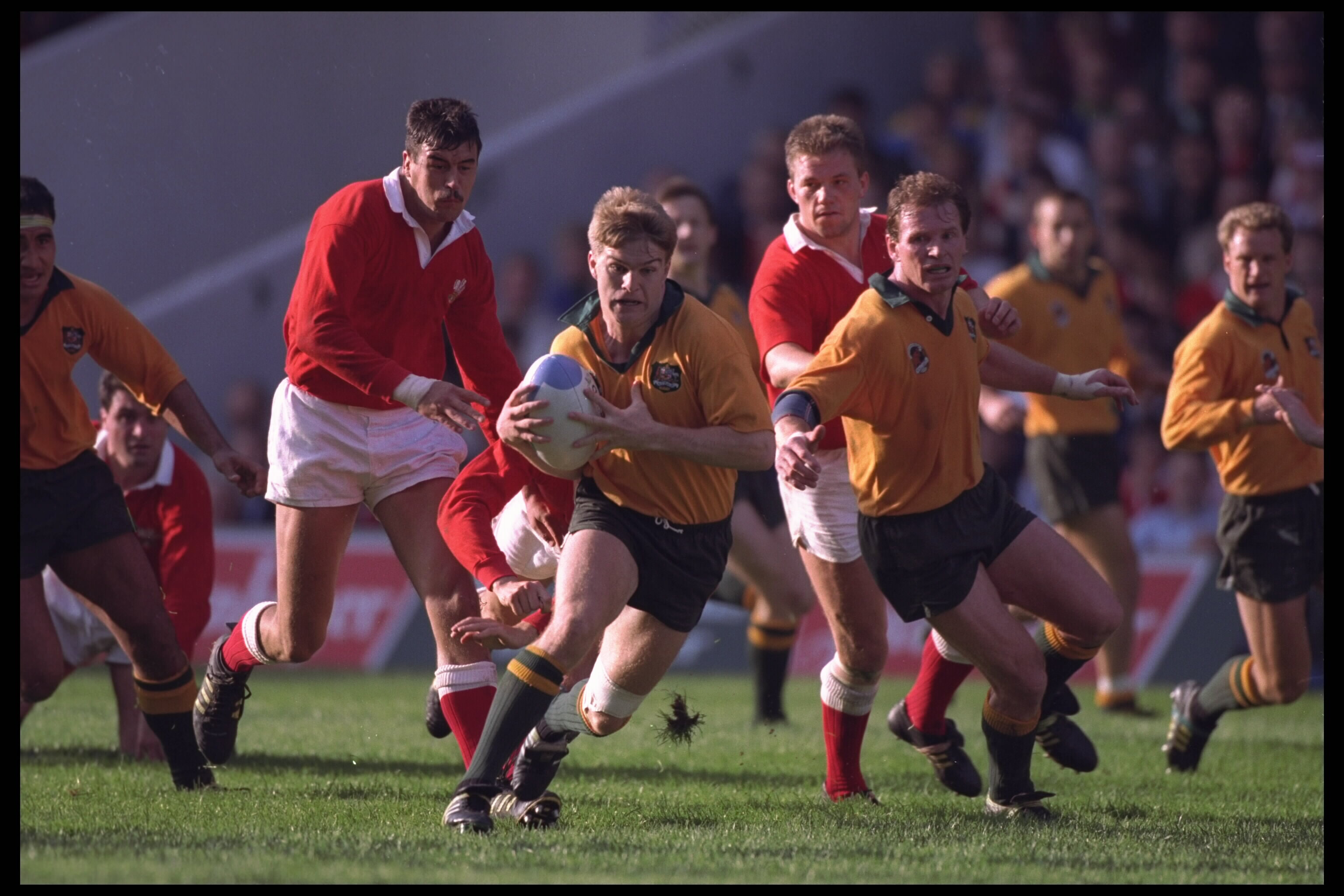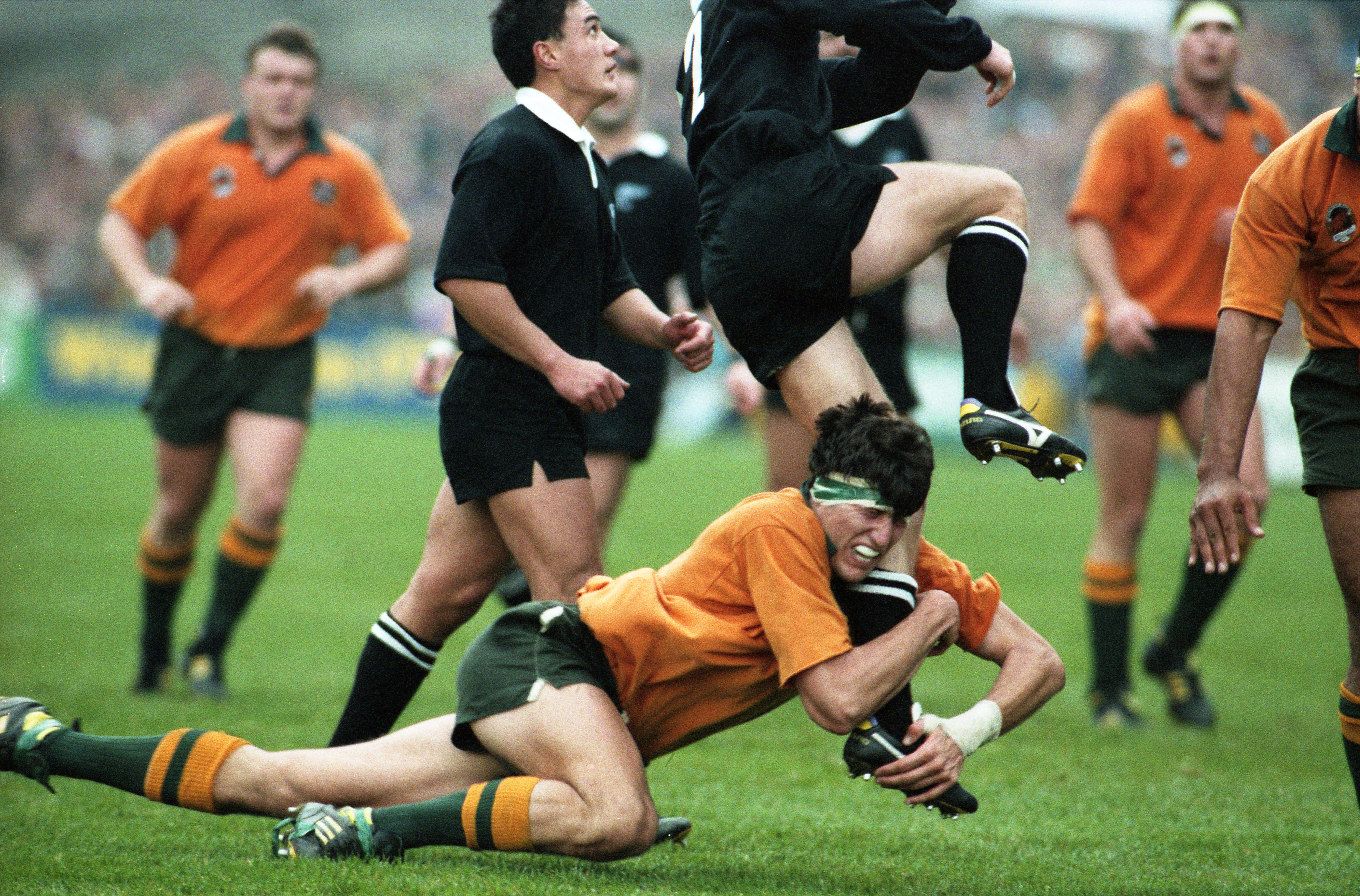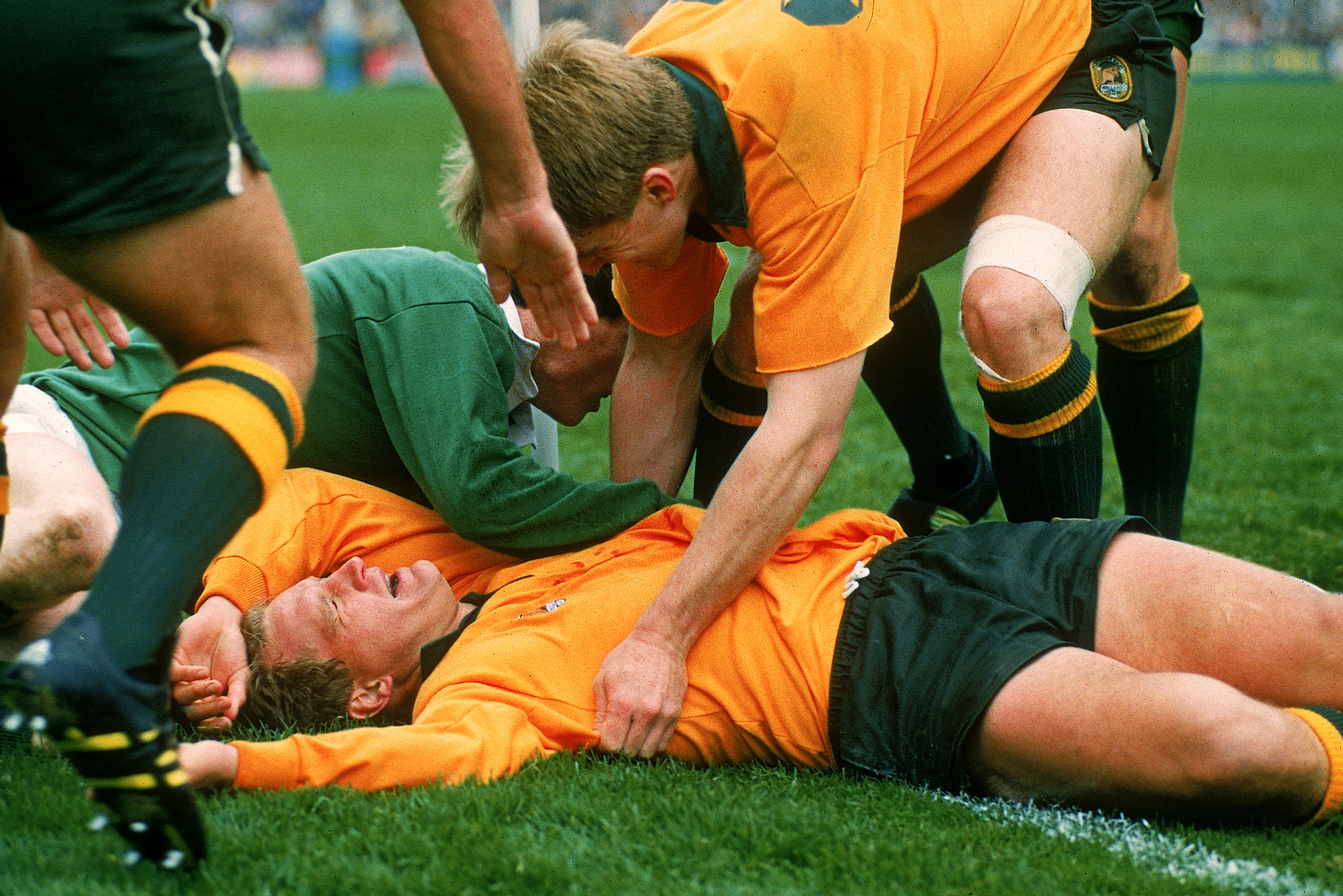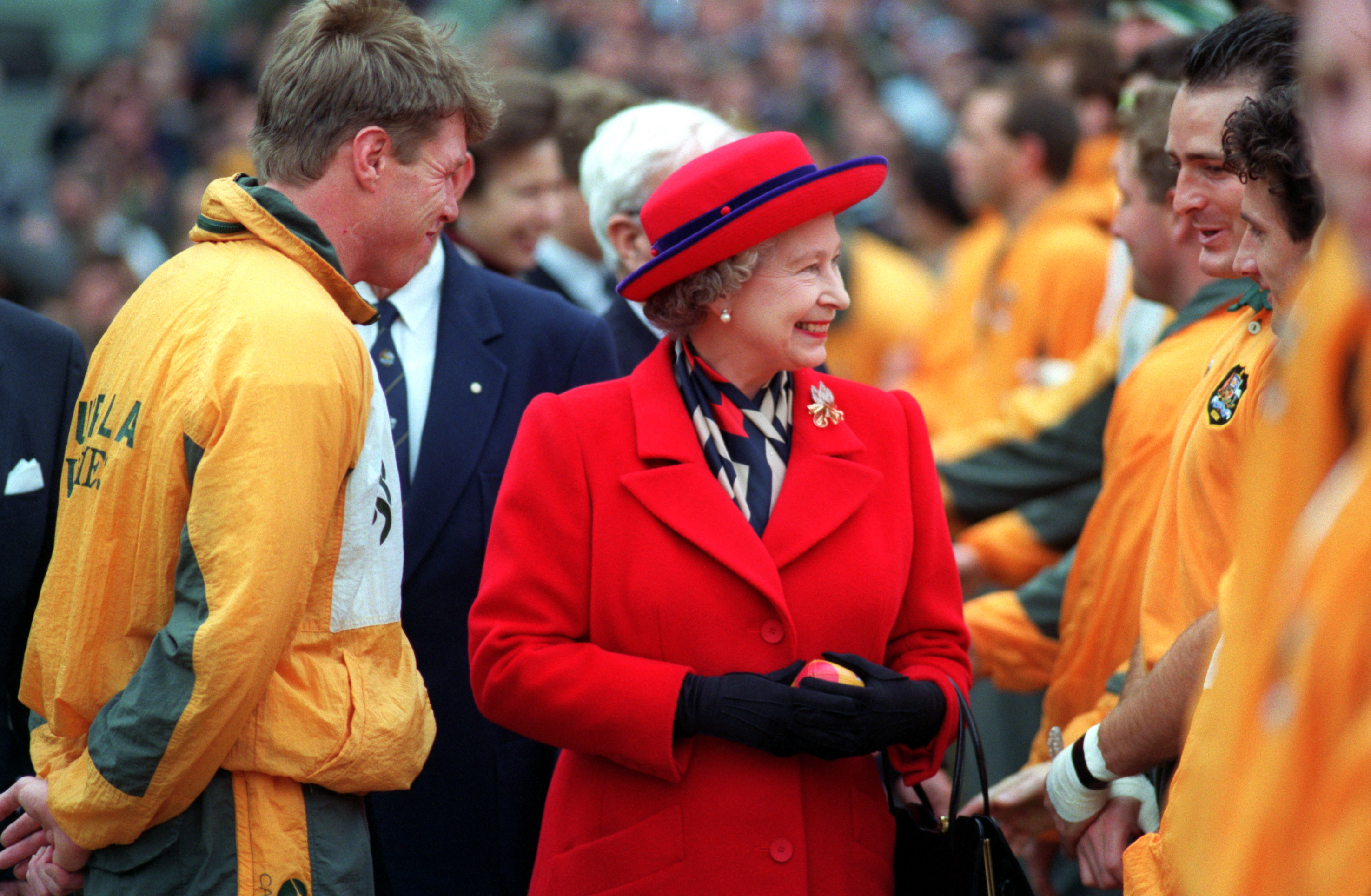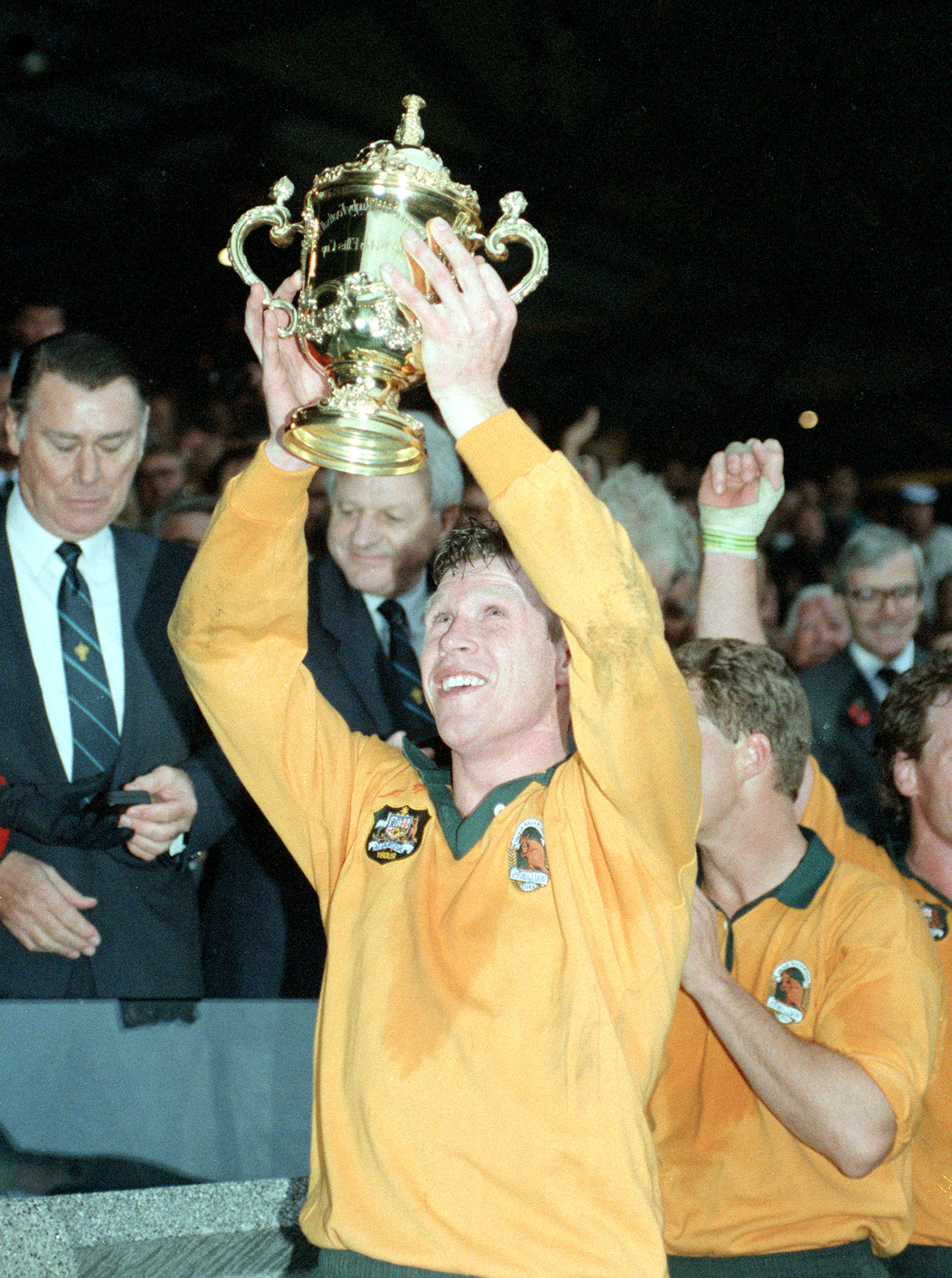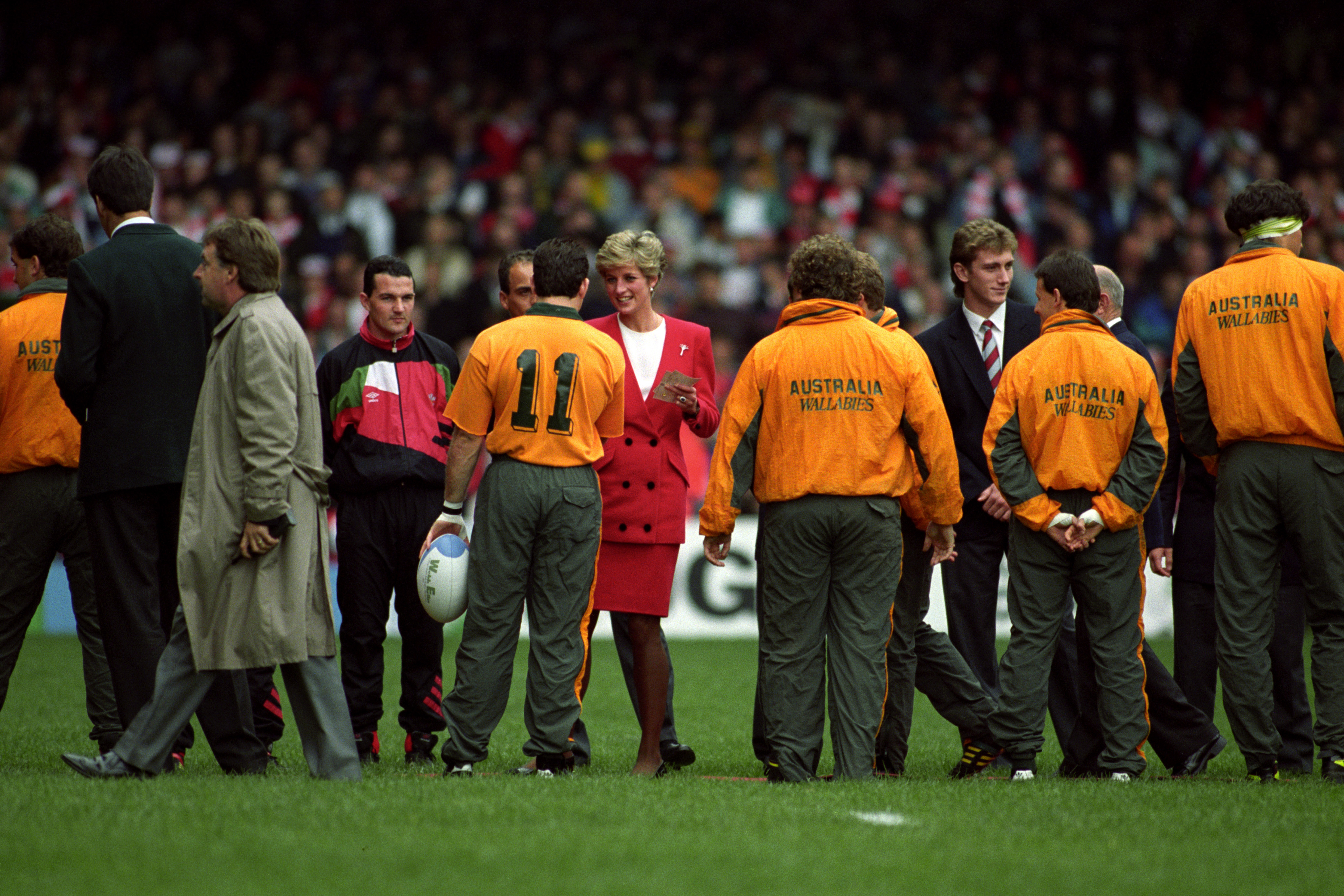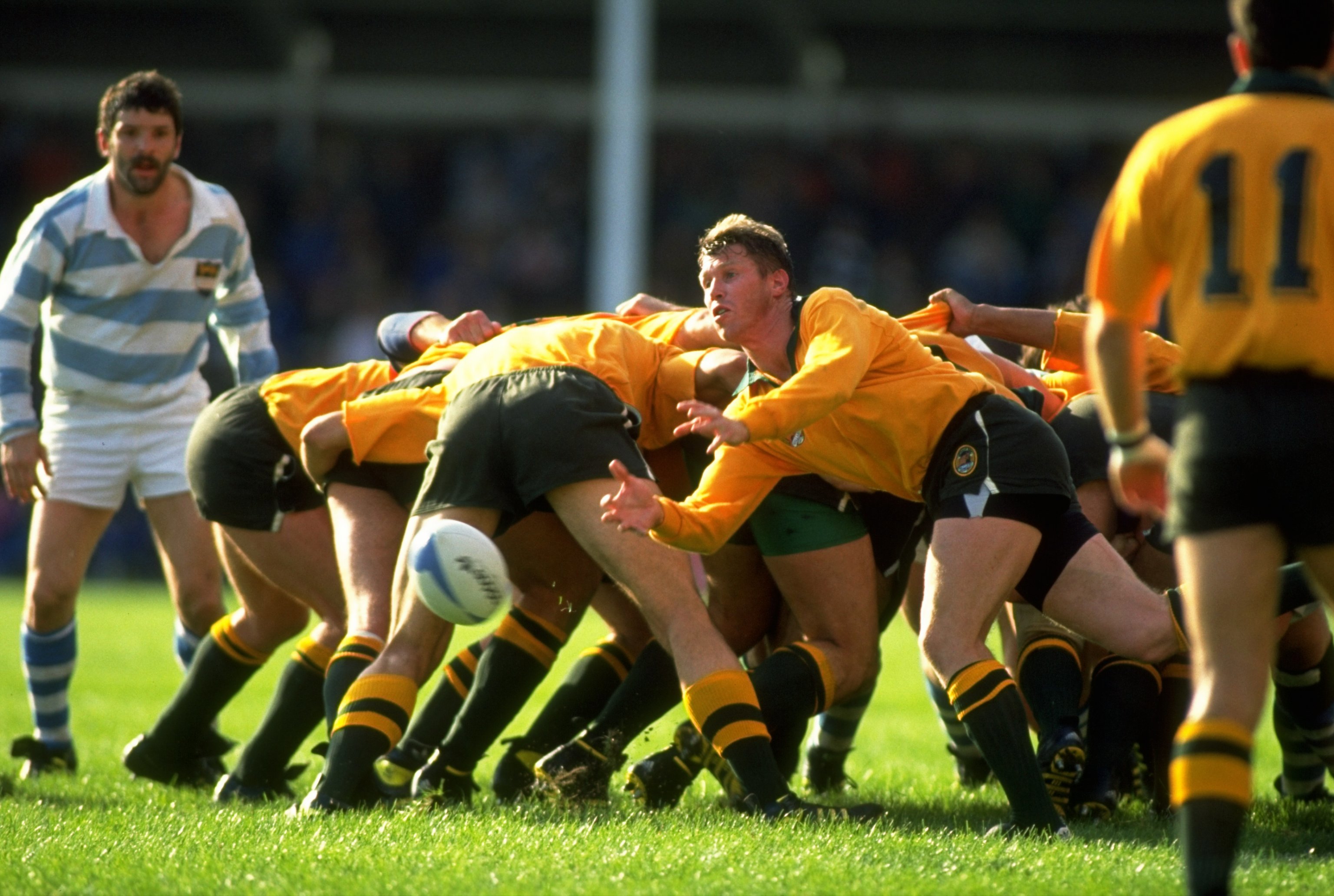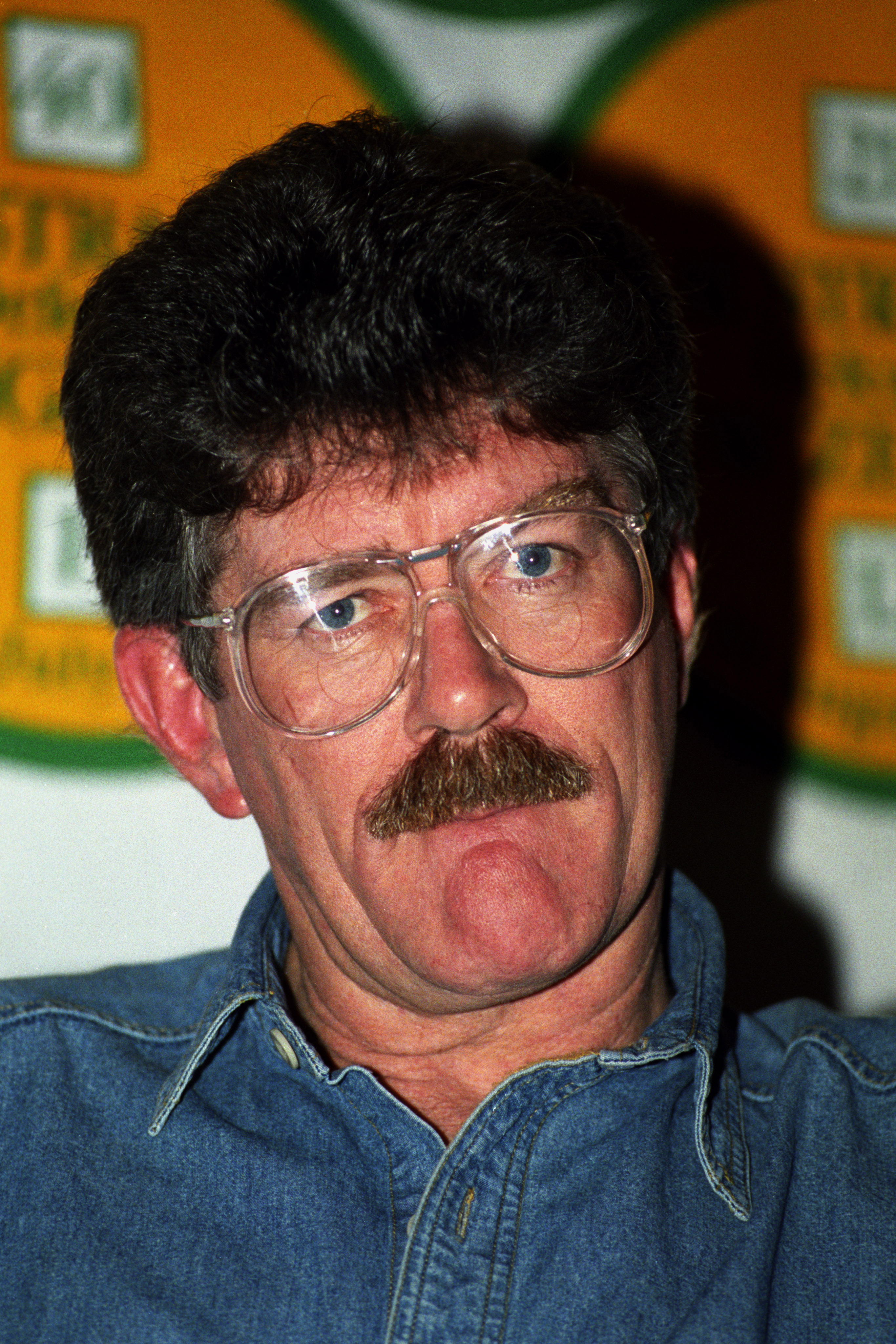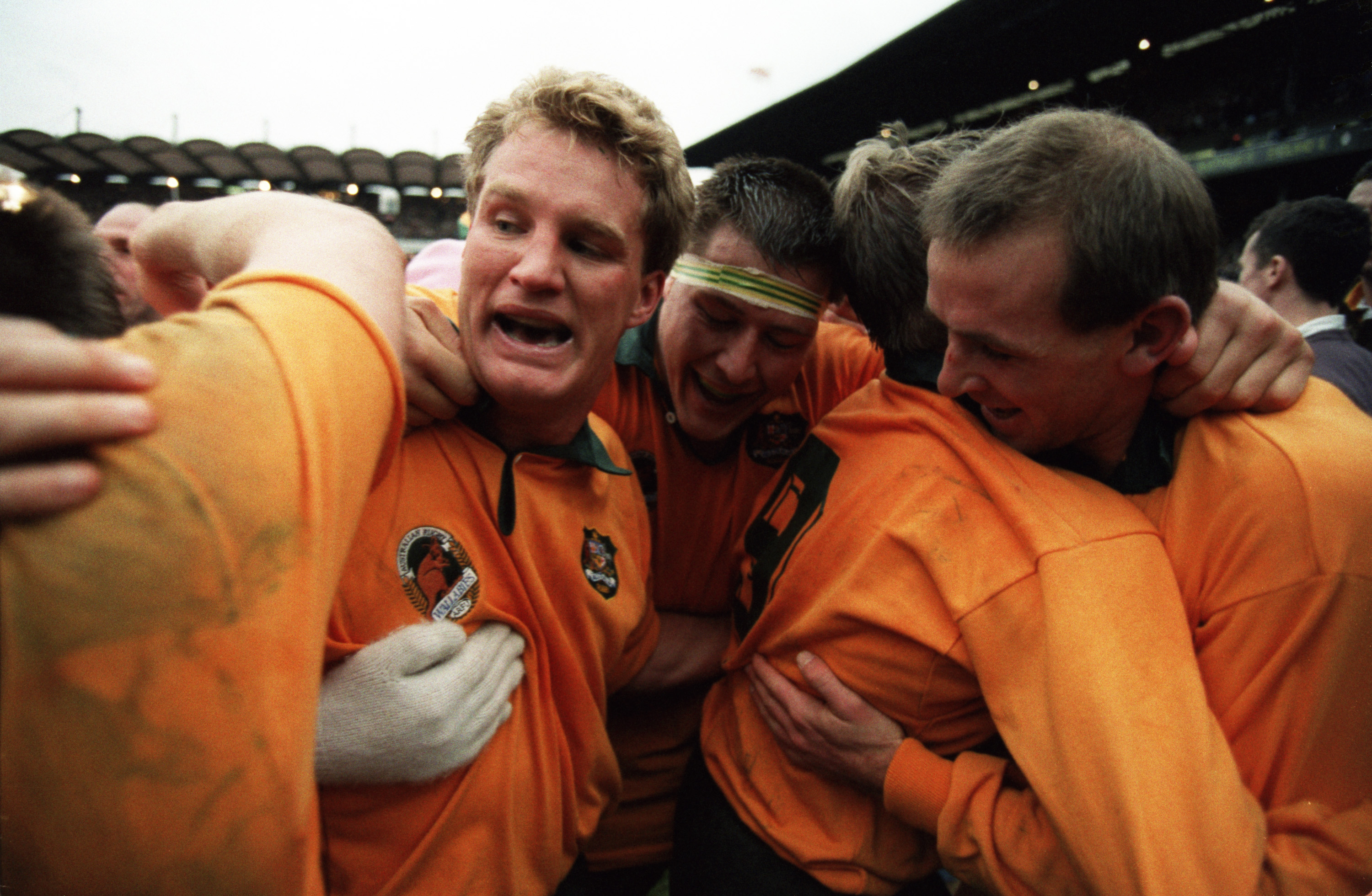Thirty years on from Australia’s historic Rugby World Cup triumph, Wide World of Sports has marked the occasion with a trip down memory lane with some of the key Wallabies figures from that 1991 campaign.
WWOS radio host Peter Psaltis spoke with gun centre Tim Horan, freak lock John Eales, cool captain Nick Farr-Jones and canny coach Bob Dwyer.
Here are some of the highlights and best anecdotes from the WWOS special.
Watch the Scotland vs Australia rugby clash on Stan Sport – the home of the Wallabies, All Blacks and Springboks spring tours. Start your seven day free trial here!
https://twitter.com/TimHoran12/status/1455304429494693890?s=20
Horan on the amateur status of the game and what that entailed in those days…
“Everyone had to get leave from their jobs, I was working at XXXX at the time which was handy because they became a major sponsor of the Wallabies. Our home base was Dublin and you’d go in groups of four or five to the Grafton Street Mall and we were selling Wallabies programs for two pounds.
“Some guys were selling a spare tracksuit for 10 pounds and all that money would be pooled up into a team fund that at the end of the tour, you might have got 100 or 200 pounds to do some shopping on the way home, to buy a present for your wife or girlfriend.”
READ MORE: Turinui shares epic Melbourne Cup story from 2003
READ MORE: Brutal Jones methods revealed in newspaper report
READ MORE: Notorious pitch invader joins All Blacks for anthem
Horan on the unbelievable 19-18 quarterfinal win over Ireland at Lansdowne Road…
“Gordon Bray and Chris ‘Buddha’ Handy, you could hear them commentating, that’s how quiet the ground went when Michael Lynagh scored with about two minutes to go.”
Horan on the subsequent celebrations and his tour of Queensland with Jason Little…
“We nicknamed it (the Webb Ellis Cup) ‘Bill’ on the way home. We only lost it a couple of times on the seven day trip (around Queensland). Let people touch it, pick it up, have photos with it, pour XXXX Gold in it and drink out of it and do a lot of other things with the World Cup that you’re not allowed to do any more.”
Horan on the tickertape parade in Sydney and what the win meant for the game…
“We thought there’s going to be no one in the street, people are going to be eating their sandwiches going ‘who are these blokes sitting on the back of these cars?’
“We come around the corner and there’s 150,000 people lined up on George Street.
“It was just incredible. I don’t think we realised the power we had, until we got back to Australia, showing the World Cup to schools and clubs and realised how it was going to inspire the next younger generation. It probably reignited the love for rugby in Australia.”
Eales on his perhaps forgotten about appearances in the No.8 jersey…
“I did for Argentina and Samoa and they changed that as quickly as they could.
“Just two times, good to have a bit of experience there. I think I threw one of the worst No.8 passes to Nick Farr-Jones and he got crucified in one of those games.”
Eales on that dramatic quarterfinal against Ireland and Lynagh’s leadership…
“The absolute terror in everyone’s eyes when Ireland scored that try with a couple of minutes to go. Michael Lynagh pulled us in because Nick Farr-Jones was off the field and really laid it out to us. ‘OK guys, there’s three minutes to go, we’re going to kick the ball deep, we want to force them to kick into touch, we’re going to play a lineout, we’re going to play this move, and we want to score a try, we’re not going to aim for an equaliser.’
“And it’s exactly what happened, even to the extent that Michael scored the try himself.
“Under pressure, that was a really important lesson for me because I wasn’t the clearest thinking at that moment. I was thinking I’ve just put my favourite shirt in the dry cleaning, if we’re on a plane home the next day I’m not going to be able to get my shirt back in time. It’s funny what goes through your head.”
Eales on the impact of the victory and the interest from back home…
“The week leading up to the final we got something like 45,000 faxes and that was extraordinary. I remember going to speak at Wollongbar Rugby Club a year later with my second row partner Rod McCall.
“And they told us the only reason this club exists is because of the Rugby World Cup.
“It might have been a rugby league club before that and people said ‘no, we want to change it to a rugby club.’ Stories like that mean quite a bit to you.
“It certainly brings back a lot of great memories.
“You tend to as time goes on remember the happier times, and forget about how much pain there was along the way, and how hard you worked along the way.”
Farr-Jones on the ticker-tape parade and his own reluctance for it to actually occur…
“Coming back to that ticker tape parade on George Street in Sydney, I tried to call it off because I really thought it would be a flop. It had never been done before and then about 130,000 people lined George Street, it was amazing.
“We had to put six fax machines in our London hotel to cope with the demand before that final. Before we got back I actually called our Premier, Nick Greiner, and said ‘look, Sir, it’s a wonderful gesture but please call it off because I really thought it would be a flop.’ I’d go to places like Hobart for a lunch and 600 people would turn up.
“It was quite amazing.”
Farr-Jones on his plans to toast 30 years with Dwyer and their wives…
“I’ve had this ’91 Grange for a long time and hopefully, 30 years down the track, it’s not off.”
Dwyer on a French taxi driver’s prescience on tour with the Wallabies…
“At the end of that ’89 tour I was in a taxi with my wife Ruth in Paris and when I told the driver where we were going, he said ‘Anglais?’ to me, was I English?
“I said ‘no, no, no, Australian.’ He said ‘oh, Australian rugby very good, I think they will win the next World Cup.’ How about that, a taxi driver in Paris after we’d played quite well on that tour and had a very good four tries to nil win against France in the first Test.
“I thought to myself ‘gee, if a French taxi driver tells you you’re heading in the right direction, you’ve got something right.’ It was a privileged existence for all of us and I remember it most fondly.”

